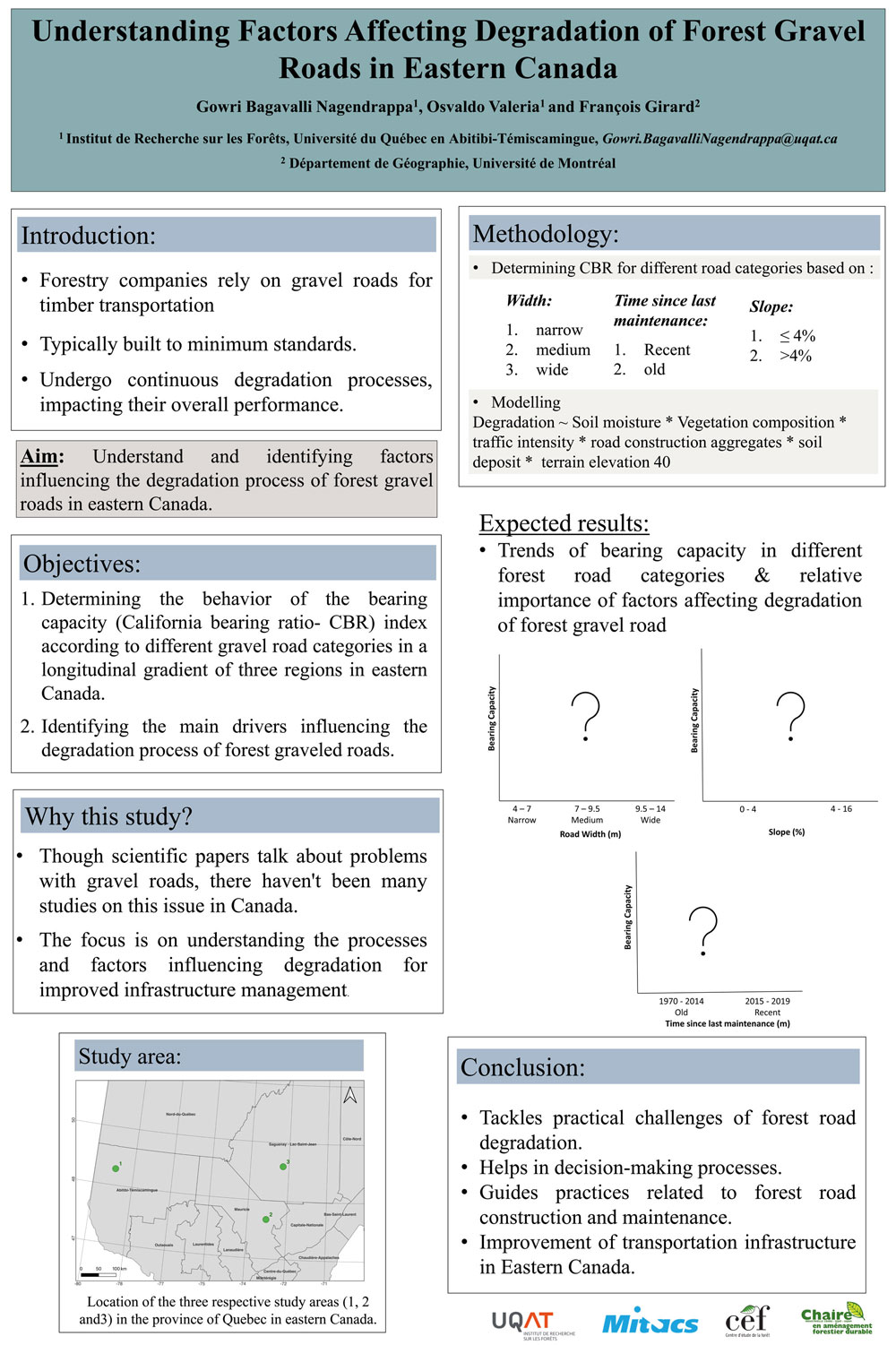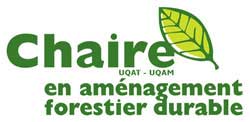
Forest roads are crucial for transporting vital forest resources in Eastern Canada, but their maintenance after harvesting is often inadequate, leading to a gradual deterioration of these important road networks. The California Bearing Ratio (CBR), a key measure of road strength, plays a significant role in assessing the functional and structural condition of these gravel forest roads, providing essential information about their degradation. This research is dedicated to unraveling the complex connection between CBR and the various types of forest roads found in a longitudinal gradient of three regions. By examining how CBR varies across different road categories, the study aims to gain a comprehensive understanding of the factors contributing to the degradation of gravel forest roads. In addition to analyzing traditional factors like soil moisture, humidity, and dominant vegetation, this research delves into the intricate interplay of elements influencing road deterioration. The study also investigates the impacts of factors such as traffic intensity, specific road construction materials, and soil type, with the goal of uncovering the dynamics that govern the degradation of forest gravel roads. Furthermore, the research includes an analysis of environmental factors, including terrain elevation, orientation, and slope, to grasp their implications for the structural integrity of the roads. This comprehensive approach seeks to provide a holistic understanding of the interrelationships that shape road degradation. Ultimately, the research aims to guide road construction, usage, and maintenance by identifying the most significant factors, thus improving the forest resource transportation network in Eastern Canada. Keywords: forest gravel roads, California bearing ratio, degradation, soil moisture, traffic intensity
